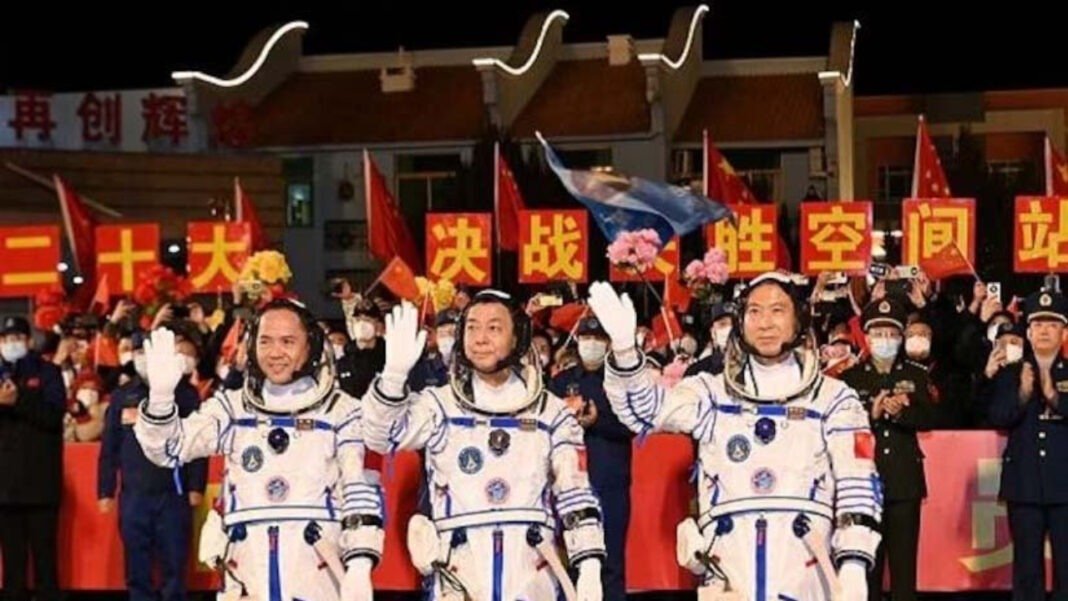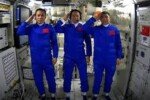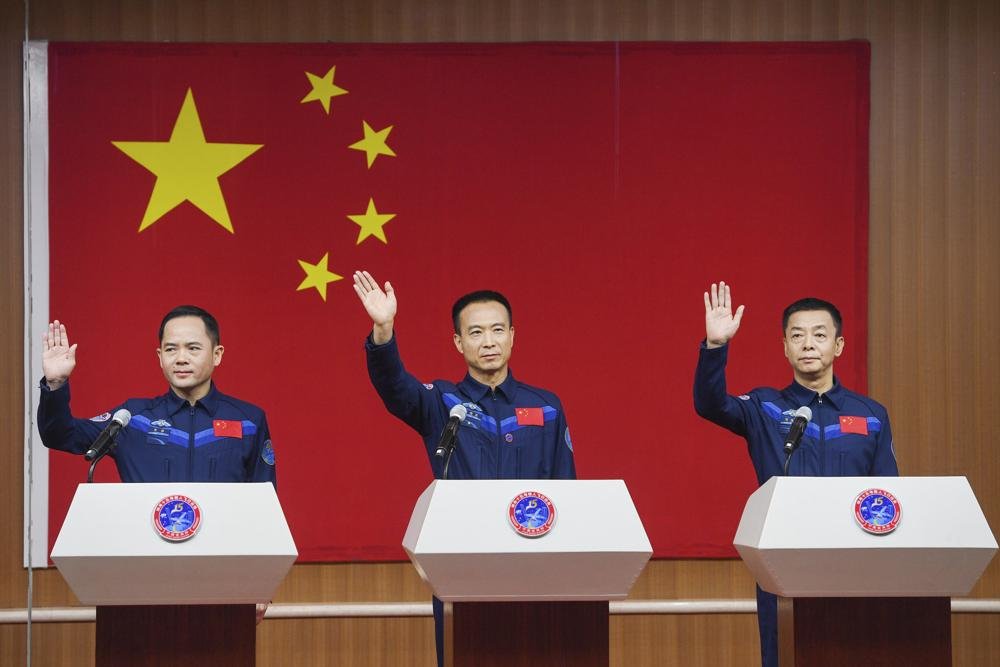BEIJING/JIUQUAN, June 4 (PTI): Three Chinese astronauts on Sunday returned safely to Earth on board the Shenzhou-15 manned spaceship after completing their six-month mission to build China’s space station.
Shenzhou-15’s return capsule carrying astronauts Fei Junlong, Deng Qingming and Zhang Lu, touched down at the Dongfeng landing site in north China’s Inner Mongolia Autonomous Region at 6:33 am (Beijing Time), China Manned Space Agency (CMSA) said here.
The three completed their six-month space station mission, it announced.
The astronauts were in good shape, and the Shenzhou-15 manned mission was a success, the agency announced.
The three were replaced by three other astronauts, including China’s first civilian who successfully flew to the space station on May 30.
The new set of astronauts will stay in the space station for five months.
Once ready, China will be the only country to own a space station as the International Space Station (ISS) of Russia is a collaborative project of several countries. The ISS station is also set to be decommissioned by 2030.
The significant feature of China’s space station is its two robotic arms, especially the long one which can grab objects, including satellites from space.
The three astronauts later arrived in Beijing by plane after their safe return to earth.
The crew will enter a period of medical quarantine and undergo comprehensive medical examinations and health evaluations, the CMSA said.
“We have completed all the scheduled tasks and felt good after returning to the motherland,” Fei, the mission commander, said.
Fei had also participated in the country’s second crewed space mission, Shenzhou-6, in October 2005.
Deng, who finally got the chance to fly to space after 25 years of preparation, said: “I always believe in the power of dreams and persistence. No matter how old I am, I feel so happy to be needed by the nation.”
“I’m now very excited, and when I was on the space station, I often watched through the window, trying to find my motherland and hometown,” Xinhua news agency quoted Zhang, one of China’s second batch of astronauts, as saying.
“We will adjust our bodies as soon as possible, go back into training, and be ready for space missions in the future,” Zhang added.
During their stay in the space station, the crew successfully obtained three-dimensional structural images of their skin cells with the country’s self-developed two-photon microscope, Xinhua reported.
This achievement, the first of its kind worldwide, marked the success of the in-orbit verification experiments of the two-photon microscope, providing a promising tool for future health monitoring of astronauts in orbit.
They also successfully performed the first in-orbit ignition test in the Mengtian space lab module’s combustion cabinet during the Shenzhou-15 mission.
In addition, it is worth mentioning that the operation of the country’s Stirling thermoelectric convertor realized its in-orbit verification. The heat-to-electricity convertor showed an internationally advanced conversion efficiency during its smooth operation, the CMSA said.
They also completed in-orbit experiments on liquid metal thermal management on its space station for the first time ever during the Shenzhou-15 mission.
These experiments verified a series of key technologies concerning bismuth-based metal in microgravity, such as controlled melting, expansion and convection heat transfer.
As of May 29, they had conducted eight human factors engineering research activities, 28 space medical experiments and 38 space science experiments covering life ecology, material science and fluid mechanics, and obtained valuable experimental data, the CMSA said.
The crew also moved cargo outboard several times and installed several items of equipment, including extravehicular extended pump sets, cross-module cables, and supporting devices for the extravehicular payload platform, laying a foundation for carrying out subsequent large-scale science and technology experiments outside the space station, according to the CMSA.
The crew witnessed the completion of the country’s space station construction, it said.












